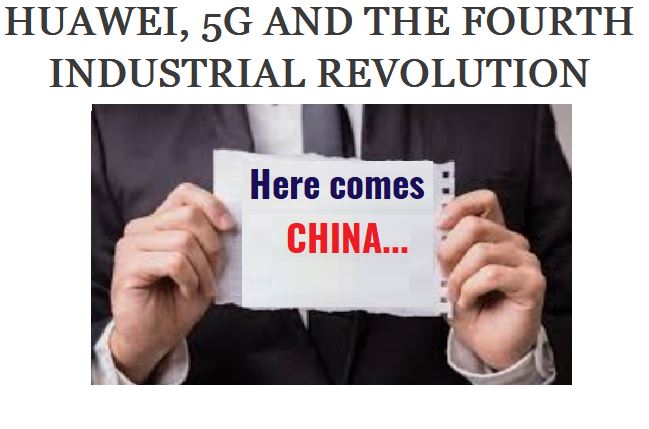As the world braces for the sweeping transformations of the Fourth Industrial Revolution, a pivotal shift underpinned by the rapid deployment of 5G technology, China is poised at the forefront, orchestrating a future where connectivity meets boundless innovation. At the heart of this revolutionary transition stands Huawei, China’s technological titan, steering the helm of 5G’s expansive rollout.
Unleashing the Tsunami of 5G
Globally, nations are in a relentless race to harness the power of 5G technology—anticipated to be the cornerstone of self-driving cars, immersive virtual reality, and interconnected smart cities. This is not merely about connecting millions of devices but rather orchestrating a symphony of billions of smart devices in seamless concert. Countries that leap first into this 5G arena are set to gain a competitive edge that could span more than a decade. According to a projection by Deloitte, early adopters of 5G could witness significant macroeconomic boosts, carving out substantial leads over their slower counterparts.
China’s strategic blueprint,
outlined in its ambitious Five-Year Plan, earmarks an investment of over $400 billion into 5G, not just propelling its own advancements but potentially creating a '5G tsunami'. This immense push could set a pace that might render the global race almost non-competitive, positioning China at an unparalleled vantage point in the tech landscape.
The Invisible Backbone of Modern Industry
Much like the understated yet crucial role of railways in earlier industrial revolutions, the true power of 5G lies beneath the visible surface. It is poised to become a national productivity engine, transforming core industries and everyday experiences with its robust capabilities. Delivering speeds up to 20 times faster than 4G and handling up to a million devices per square kilometer, 5G stands as the backbone for the burgeoning Internet of Things (IoT).
The transition to 5G,
however, demands a paradigm shift in network infrastructure. Unlike its predecessors, 5G requires a complete overhaul, necessitating new base stations and a revamped core network to support its ultra-fast data speeds and substantial capacity expansions. These advancements promise to support not only the vast web of IoT but also critical applications like autonomous driving and intricate machine-to-machine communications.
Transforming Realities and Future Prospects
The impact of 5G stretches beyond mere technological upgrades; it's set to revolutionize how machines interact with each other and with humans, fostering an environment where devices operate as extensions of human capabilities. The ultra-low latency of 5G, for example, facilitates a reaction time that is ten times faster than the blink of an eye, thereby enabling technologies with a 'living' feel, responsive in real-time.
Huawei’s innovations and China’s aggressive infrastructure
strategies are illustrative of this shift. A striking example of 5G’s potential was showcased in a pioneering remote surgery conducted in China, heralded as a global first and a testament to 5G's transformative impact on medical sciences.
A Geopolitical and Technological Edge
China's rapid deployment of wireless infrastructure further consolidates its lead in the global 5G race. In 2017 alone, China Tower added approximately 500 cell sites daily, amassing a network that vastly outstrips that of the United States. This stark contrast not only underscores the technological ambition of China but also highlights its capability to execute large-scale technological rollouts efficiently.
US just would not catch up China
According to tech pandits there are two big bones of contention that will just not allow US to even be a remote second in this great industrial revolution. One, being the cost of just getting things done in the US is 3 times greater than that of China. For a simple example, just imagine, China pumps 700 billion into a next disease cure tech project, and if US is to follow suit, its costs would scale up to trillions. Now a fair question to ask here would be, would the bureaucracy allow for such a sky dreamer ?
Next reason has to do with the core dna of US. For a long time US has been a strong stalwart who got its way, either be persuasion or by threat or by force[Henry Kissinger Quote: “To be an enemy of America can be dangerous, but to be a friend is fatal."] But today the game has changed. Just as marine technology saw the rise of UK, countries around were soon to line up at the doors of UK for collaboration and support. Then came the great industrial revolution, which saw the rise of US, as always countries lined up for collaboration and support. Coming to the present, we see the dawning of the new tech industrial revolution, which has China as its leader, but the question is, will US bite its tongue and swallow its pride and extend the hand of request ?
In conclusion:
as Huawei and China navigate the currents of the Fourth Industrial Revolution, their journey is not just about technological achievement but also about crafting a future where digital landscapes redefine the physical realms. With 5G as their spearhead, they are not just participating in the revolution; they are leading it, promising an era where digital connectivity translates into economic supremacy and technological dominance.
